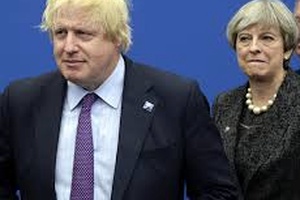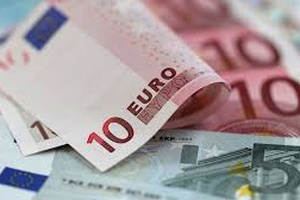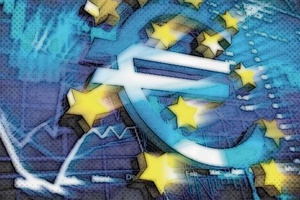-
May 9, 2020
Eurozone auf Wiedersehen?

With its recent ruling on the EBC's QE programm, the German Federal Constitutional Court just crossed the Rubicon and for the first time ever nullifies action by an EU institution (the ECB) which had been declared fully legal by another EU institution (the ECJ) – and on the basis of economic arguments on which it has no expertise. It now remains to be seen what will happen. read more
-
March 29, 2019
Let’s not oppose climate policies and purchasing power! Lessons from the French climate transition

Rising green taxes on gasoline initially sparked the “Yellow Jackets” movement in November 2018. The winter of discontent that came with the tax riots reminds us of the importance of reconciling protection of purchasing power with that of the climate. read more
-
Feb. 4, 2019
The European way of designing smart cities

Though often regarded as more advanced in both design and implementation of innovative models, European cities face specific issues that challenge the very notion of “smart city.” Is it possible for a data-driven city to preserve this delicate mix of rational and irrational that seems to define the European urban experience? read more
-
July 19, 2018
Drowning, not waving: the UK and Brexit

So far Mrs May has been able to hold her party together – there currently seems to be no desire for a leadership challenge from those dissatisfied with her proposals, and there is no readily apparent leader in waiting. A challenge may come later in the year, especially if the government is seen as making any further concessions to the EU. Meanwhile preparations for a No Deal outcome are under consideration. Thus, the British government is not quite drowning and is certainly not waving. But its boat is certainly unstable. read more
-
May 23, 2018
Fiscal money is an illusion, not a solution

In their recent Telos post, a group of Italian economists who name themselves the Group of Fiscal Money assert that Credit Tax Certificates, which are tax assets, would not increase the Italian government deficit and would even contribute to curtail the debt burden. I am not convinced by their argumentation. read more
-
May 23, 2018
Fiscal money as a solution to Italian eurowoes

As fiscal rules constrain Italy’s ability to reflate demand by issuing debt, and with monetary policy being as accommodative as it gets, an alternative instrument is required. Fiscal Money provides such instrument. Our proposal is for government to issue transferable and negotiable bonds, which bearers may use for tax rebates two years after issuance. read more
-
Jan. 17, 2018
Réconcilier solidarité et discipline de marché dans la zone euro

La zone euro goûte enfin au bonheur d’une reprise robuste. La tentation est forte pour les responsables politiques de baisser la garde. Ce serait une grave erreur car la monnaie unique reste vulnérable. Quatorze économistes français et allemands, considérant que la polarisation du débat entre solidarité (entre États membres) et responsabilité (au niveau de chacun d’entre eux) constitue une fausse alternative, proposent six réformes… read more
-
Jan. 15, 2018
Haute tension en Argentine: les suites de l’affaire du juge Nisman

Vingt-quatre ans après l’attaque terroriste à la bombe contre l’AMIA, mutuelle juive de Buenos Aires, qui fit 85 morts et plus de 200 blessés, et la mort en 2015 du juge Nisman chargé de l’enquête, la police et la justice argentines progressent dans leur recherche des auteurs de la mort du juge Nisman, et de ceux de l’attentat de l’AMIA, dans un climat tendu… read more
-
March 30, 2016
Protect or innovate? Of Marseille Soap and other traditional products

How to protect non-food products which are emblematic of a geographical area? The European Commission is working on the extension of both protected designation of origin (PDO) and protected geographical indication (PGI) system for non-agricultural products. What are the challenges? Is such a regulation adapted? read more
-
March 11, 2016
Boris Johnson, tea bags and the complexity of law

Boris Johnson, in his plea for Brexit, develops the familiar theme of excess of niggling and stupid standards coming from Brussels. But the proliferation of legal texts is not to be blamed on the European Union. It reflects the tensions between conflicting aspirations of a complex society, the demand for ever greater security and the refusal of any hazard. read more
-
Feb. 24, 2016
Does France really need solar roads?

Contrary to its neighbors and partly due to the low cost of its nuclear electricity, until recently France did not show much interest in solar energy. The country now seems to be catching up. Public policies are implemented, both to encourage households and to foster an industry which has not yet reached maturity. Only thing is, one can hardly make sense of some of these policies. read more
-
June 19, 2015
The case for a European data policy

A consistent set of European standards could prove to be a lever for framing a digital industrial policy. In a legal framework where individuals come under high protection, the winners will be the enterprises who inspire enough confidence to obtain the users’ consent to access and use their personal data. Trust, says Rachel Botsman, is the currency of the 21st Century. Maybe. But data is the commodity of the future, and those who can combine trust and valuable data can lead the race. It has just started. read more
-
March 26, 2015
The dark side of the Californian dream

If the structural problems of inequality, racism, immigration and unemployment seem beyond our control, why not simply change what we can, here and now? And why not use our cell phones and laptops to do it? Because Silicon Valley itself shows us it won’t work. read more
-
Nov. 29, 2011
Is Asia afraid of China?
At the 6th East Asian Summit in Bali on 19th November the Chinese Premier, Wen Jiabao, found himself the butt of almost universal criticism from the leaders of the ten-member Association of Southeast Asian Nations (ASEAN) both for Chinese territorial claims and recent provocative actions in the South China Sea. Supported by the United States as well as India, Australia and Japan, the ASEAN countries insisted on multilateral negotiations over these questions, while the Chinese remained firm on the principle of bilateral solutions in which they would have a distinct asymmetrical advantage. read more
-
Nov. 26, 2011
Strategic Games around Free Trade Agreements in the Asia-Pacific

Barely a week after the G20 in Cannes, ten of the 20 leaders reconvened half way across the world in Honolulu as part of the annual summit of the Asia-Pacific Economic Cooperation forum (APEC), together with other Pacific Rim leaders. APEC summits are usually quiet and polite affair. This time, however, APEC became the scene of great diplomatic games and one more match in the growing strategic rivalry between China and US. Indeed, the US decided to use APEC as platform for strategic reengagement into Asia and balancing China’s growing dominance. This game may well be the one with the most significance for the future of the world economy. read more
-
Nov. 23, 2011
Can Technocratic Government be Democratic?

The resignations of Papandreou in Greece and Berlusconi in Italy, replaced by technocratic governments, have raised questions about the democracy of technocracy. These questions only gain in intensity when we add the EU Commission’s increasing powers of surveillance of member states’ national budgets, let alone those of the Troika (IMF, European Central Bank, and EU Commission) when it comes to eurozone member states that have had recourse to loan bailouts (Greece) or to the European Financial Stability Facility (EFSF). The answers to such questions are mixed. Berlusconi's replacement with a technocratic government—precipitated primarily by global market pressures—may actually be a sign of democracy at work. Papandreou's replacement—precipitated by the pressures of the eurozone powers and Papandreou’s own ill-advised gamble on ‘direct democracy’—depends upon how things play themselves out. As for the technocratic governance of the EU, this is where the democracy deficit may be greatest. read more
-
Nov. 16, 2011
The New Everyday

Much of what I have previously written in this website suggests a powerful, albeit mostly implicit, motif. The profusion of technological information that is characteristic of our age is rapidly moving beyond the borders of social and economic institutions in which it was originally spawned in the form of filing, indexing and data processing. It increasingly infiltrates and ultimately colonizes everyday living. The relevant developments are certainly associated with the massive involvement of the internet in social life but they have further been reinforced by growing bandwidth, media convergence and social networking. They have, of late, been given a new push by the the rapid diffusion of a battery of potent portable and connectible digital devices such as smartphones, digital cameras and tablet computers that are operating across the traditional semiotic borders of text, sound and image and the separate technological conventions to which reading, listening and viewing have traditionally belonged. read more
-
April 17, 2011
Africa, AIDS and governance

Sub-Saharan Africa is by far the world region most affected by AIDS. It is estimated, according to UNAIDS, 2.2 million people were newly infected with HIV / AIDS in 2008, bringing to 24.1 million people living with HIV / AIDS in the worst case. Because there seems to be a link between AIDS and poverty in Africa, and a link between poverty and bad institutions, the epidemic raises the question of the quality of institutions, and after all, it can appear as an incentive to improve institutions. read more
-
April 12, 2011
The trouble with the European Stability Mechanism

The meeting of the European Council on 24-25 March focused on shoring up the battered Eurozone infrastructure through the European Stability Mechanism. This column argues that the mechanism is seriously flawed. It says it is unlikely to withstand the shock of a severe financial crisis and may even spread the damage to high-debt countries, while leaving the Eurozone in the grip of paralysing vetoes. (in French; English version available on VoxEU) read more
-
March 31, 2011
The Libyan Intervention in the Rear View Mirror

When we look back on the Libyan intervention, will we think of it as another Rwanda, another Somalia, or something else entirely? ‘Rwanda’ reminds us of the shame of inaction, ‘Somalia’ reminds of the costs of poorly executed action, and ‘something else’ stands for the promise of doing the right thing. read more
